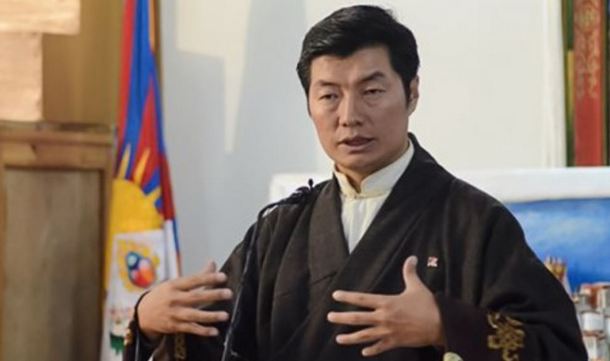Dharamshala, India — Tibetan President Dr Lobsang Sangay thanked U.S. Secretary of State Mike Pompeo for consistently supporting the issue of Tibet and raising a strong voice for the 11th Panchen Lama who was kidnapped by Chinese authoritarians in 1995, at the age of 6.
This year marks the 25th year of the enforced disappearance of Tibet’s 11th Panchen Lama Gedhun Choekyi Nyima and his entire family by the Chinese authoritarian-communist regime.
The President of Central Tibetan Administration previously known the Government of Tibet, Dr Lobsang Sangay issued a statement today thanking the US Secretary of State “for not only consistently supporting the Tibet issue but also making a call for the Panchen Lama in the strongest words ever in a long time. This shows the US unwavering solidarity with the Tibetan people.”
The US Secretary of State Mike Pompeo issued a strong-worded statement on the 25th anniversary of the Panchen Lama’s enforced disappearance, demanding the Chinese government to release and “immediately make public the Panchen Lama’s whereabouts”.
The statement reiterated the United States concerns over China’s ongoing campaign to eliminate the religious, linguistic and cultural identity of Tibetans.
Referring to the global call on China to release the Panchen Lama, the Tibetan President said that “it sends a strong message to the Chinese government that the international call for Panchen Lama is stronger than ever and will continue to campaign for his release until he is able to return to his rightful place at the Tashi Lhunpo monastery in Tibet.”
Earlier today Secretary Mike Pompeo tweeted on the Panchen Lama’s disappearance reiterating his call on the Chinese government to reveal the spiritual leader’s whereabouts and to end the state’s interference in religious practices.


![Tibet has a rich history as a sovereign nation until the 1950s when it was invaded by China. [Photo: File]](/images/stories/Pics-2024/March/Tibet-Nation-1940s.jpg#joomlaImage://local-images/stories/Pics-2024/March/Tibet-Nation-1940s.jpg?width=1489&height=878)
















